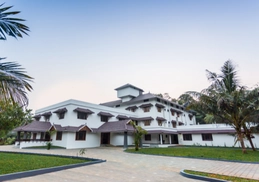
+91 8095511877

+91 8095511877
An allergy is the response of your immune system to a foreign substance. These foreign substances are allergens, and they are typically not harmful.
Allergies are very common in the world. While there is no cure for most of the allergies, there are treatments that can better manage your condition.
Ayurvedic treatment for allergies is one of the popular options as it has minimal side effects and is quite effective.
Allergens include
Your immune system will fight off these to keep you healthy. It is your body's defense system.
Depending on the allergen, the response may be sneezing, inflammation, or a host of other signs.
It happens when your immune system mistakes a harmless substance (allergen) to be a virus or bacteria. It will then produce antibodies that will attack these allergens.
These antibodies will then release many chemicals that will cause allergy symptoms. These allergens can be
You are more prone to developing allergies if you:
Hay fever can cause
The signs of drug allergies include
Ayurveda, an old medical system from India, provides another way of handling our health. It has a holistic approach that considers your body, mind, and soul as a whole.
Ayurveda's focus will be on the person as much as it is on the disease. So, the doctor will consider the person's nature while preparing the treatment plan. Thus, the plan will be specific to each person.
A key feature of Ayurveda is the focus on the balance of elements for a healthy life. As per Ayurveda, the main elements, earth, fire, water, air, and space, are present in all of us as three doshas or energy forces.
Each of us has a primary dosha, which defines us. The other two doshas are also important, and the three have to be in balance for us to be healthy.
Ayurveda stresses the importance of digestion in our bodies. Many diseases have digestion as the root cause. Allergy is one such case.
When the food that you eat does not get digested, it becomes a toxin. This toxin or 'Ama' in Ayurveda then accumulates in your digestive tract. If you continue having improper or junk food items, it adds to these toxins. They then spread to other parts of your body, adding fat to the tissues and blocking your channels.
The immune system starts to work more to overcome these problems. It then becomes more defensive. It starts to assume even harmless substances (allergens) as threats and attacks them.
As per Ayurveda, these allergens tend to aggravate specific doshas. So, you will have three types of allergies as per these doshas.
The main goals of the Ayurvedic treatment for allergy are
The treatment includes internal medicines and external therapies. Some of the common methods are
As mentioned above, your doctor will decide the right methods for your body type, main dosha, and allergy type. You will have to be in the hospital for 14-21 days for the treatment.
Yoga and meditation are part of the treatment as it helps to reduce stress and to improve your metabolism. Diet is another key factor in the treatment. Your doctor will advise the diet that you have to follow both during and after the treatment.
With proper treatment and by sticking to the advice of the doctor, you can expect great results.
The common treatments for allergy include
Allergies increase your risk of other medical problems. These include


Vaidyaratnam Mooss Ayurveda

Nagarjuna Ayurveda

Rasayana Ayurveda

AVN Arogya

Ayurvaid

Samwarthika Ayurdhama
Frequently Asked Questions
Can Ayurveda cure allergy?
What are the common types of allergies ?
What is the best treatment for allergy in India?
What is the cost of Ayurvedic treatment for allergy ?